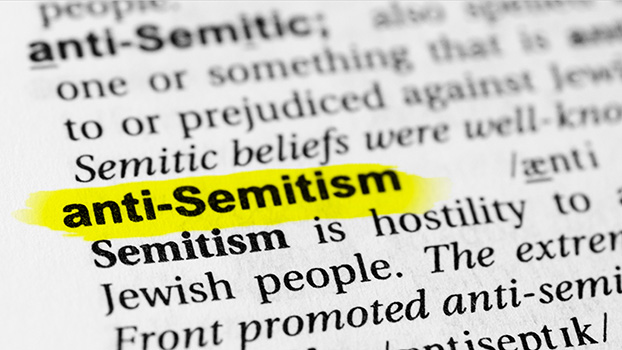Competing visions are playing out between some Jewish students and their professors in this country when it comes to the International Holocaust Remembrance Alliance (IHRA) working definition of anti-Semitism.
As of this writing, about 115 college, undergraduate, and law students from across Canada have signed an open letter calling on their campuses to adopt the IHRA definition.
The students say anti-Semitism “has found an all-too comfortable home at Canadian universities. Using the IHRA definition would help administrators establish when more insidious forms of anti-Semitism are taking place.”
Concurrently, more than 150 Jewish faculty at Canadian universities and colleges have signed a declaration opposing the adoption of the IHRA definition at their campuses.
Released March 23, the statement says the scholars, some of whose family histories were shaped by the Holocaust, write “out of a strong commitment to justice, which for some of us is vital to an ethical Jewish life.”
They say they are adding their voices “to a growing international movement of Jewish scholars to insist that university policies to combat anti-Semitism are not used to stifle legitimate criticisms of the Israeli state, or the right to stand in solidarity with the Palestinian people.”
Opponents of the IHRA definition of anti-Semitism and its list of examples fear its adoption by governments and universities stifle criticism of Israel and academic freedom.
The definition offers “a vague and worrisome framing of anti-Semitism,” the Canadian Jewish scholars say, and it equates Jewishness and Judaism with Israel – “effectively erasing generations of debate within Jewish communities.”
It also “distracts from experiences of anti-Jewish racism, and threatens to silence legitimate criticism of Israel’s grave violations of international law and denial of Palestinian human and political rights.”
The Canadians’ statement came two days before 200 scholars, mostly in the United States, Israel, the U.K. and Europe, issued the “Jerusalem Declaration on Anti-Semitism,” an alternative to the IHRA’s wording they say will combat anti-Semitism without curtailing free speech.
Because the IHRA definition is “unclear in key respects and widely open to different interpretations, it has caused confusion and generated controversy, hence weakening the fight against anti-Semitism,” the declaration states.
Signers say they seek to improve it by offering a clearer core definition and a “coherent” set of guidelines.
Scholars with ties to Canada who signed the Jerusalem Declaration are Doris Bergen, professor of Holocaust Studies at the University of Toronto; Natalie Zemon Davis, retired from the University of Toronto; Derek Penslar of the University of Toronto, now a visiting professor at Harvard University; Dorota Glowacka of University of King’s College in Halifax; and Mira Sucharov of Carleton University.
The signatures of Sucharov and Davis appear on both the Jerusalem Declaration and the statement by Canadian scholars, entitled “Jewish Faculty in Canada Against the Adoption of the IHRA Working Definition of Anti-Semitism.”
In the latter, signatories claim that on campuses where the definition has been adopted, it has been used “to intimidate and silence the work of unions, student groups, academic departments and faculty associations that are committed to freedom, equality and justice for Palestinians.”
They argue that the freedom to criticize the policies and practices of any state, including Israel, “is central to accountable scholarship, learning and education.”
They also say that the anti-Israel boycott, divestment and sanctions (BDS) movement is “a legitimate, non-violent form of protest.” While not all the signers endorse BDS, the scholars say they oppose equating its support with anti-Semitism.
The students see things differently.
Their statement cites several examples of the targeting and harassment of Jewish students on university and college campuses.
Assailants “continue to get away with it because their anti-Semitism isn’t being defined as such.”
Adopting the IHRA definition would provide administrators with guidelines to ensure students are protected, in conjunction with university anti-hate policies and in line with provincial and federal law, they say. It would help put a stop to the “pervasive anti-Semitism on campus.”
The two-page Jerusalem Declaration, meanwhile, offers its own definition of anti-Semitism as “discrimination, prejudice, hostility or violence against Jews as Jews (or Jewish institutions as Jewish).”
It then gives guidelines, including on Israel and Palestine, pointing out examples that “on the face of it” are anti-Semitic, and those that are not – “whether or not one approves of the view or action.”
It concludes: “In general, the line between anti-Semitic and non anti-Semitic speech is different from the line between unreasonable and reasonable speech.”
In an op-ed published in “The Forward” on March 25, three of the Jerusalem Declaration’s signers, including Penslar, said the document “is not and should not be used as a judicial or semi-judicial tool, nor is it intended for codification. Rather, it should be an aid for critical thinking and thoughtful discussion in a vexed landscape.”
Canada adopted the non-legally binding IHRA definition in June 2018 as part of the Liberals’ $45 million anti-racism strategy.
In another development this week, New Brunswick became the second province, after Ontario, to adopt the IHRA definition.
The province’s legislature adopted the definition unanimously on March 25 in a resolution introduced by Dominic Cardy, the Minister of Education and Early Childhood Development.







